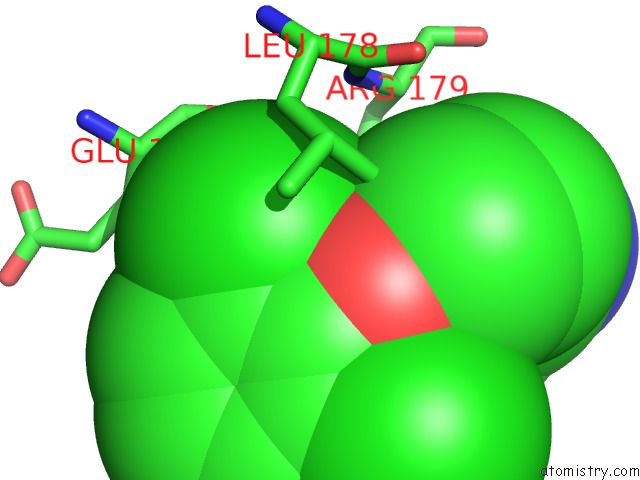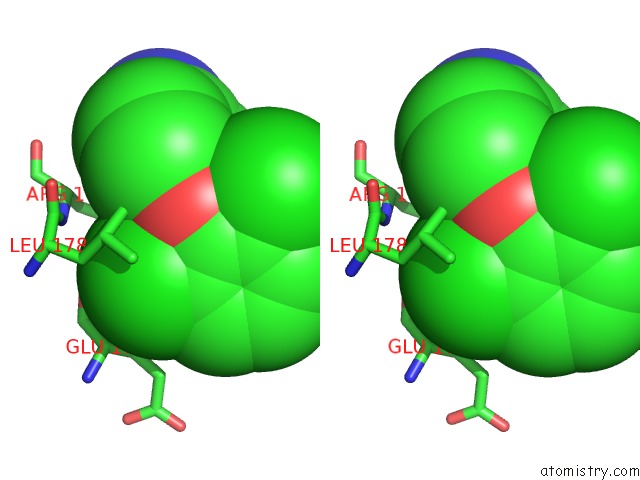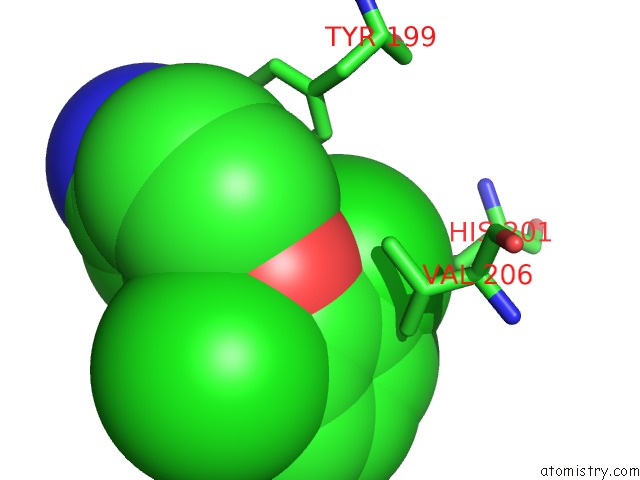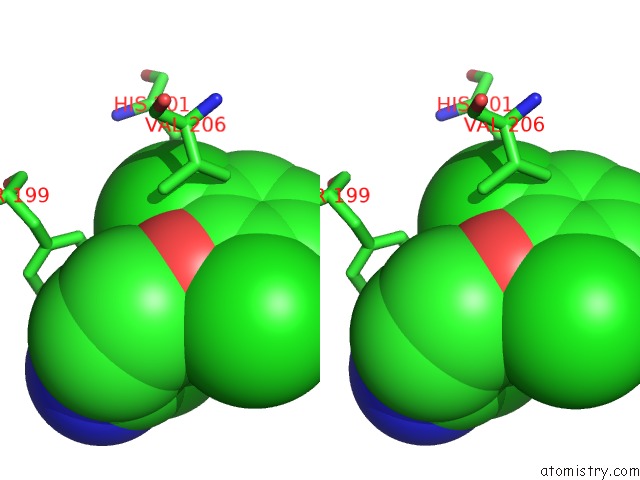Chlorine »
PDB 5ona-5os5 »
5orx »
Chlorine in PDB 5orx: Crystal Structure of Aurora-A Kinase in Complex with An Allosterically Binding Fragment
Enzymatic activity of Crystal Structure of Aurora-A Kinase in Complex with An Allosterically Binding Fragment
All present enzymatic activity of Crystal Structure of Aurora-A Kinase in Complex with An Allosterically Binding Fragment:
2.7.11.1;
2.7.11.1;
Protein crystallography data
The structure of Crystal Structure of Aurora-A Kinase in Complex with An Allosterically Binding Fragment, PDB code: 5orx
was solved by
P.J.Mcintyre,
P.M.Collins,
F.Von Delft,
R.Bayliss,
with X-Ray Crystallography technique. A brief refinement statistics is given in the table below:
| Resolution Low / High (Å) | 66.07 / 1.88 |
| Space group | P 61 2 2 |
| Cell size a, b, c (Å), α, β, γ (°) | 82.400, 82.400, 174.810, 90.00, 90.00, 120.00 |
| R / Rfree (%) | 22 / 27 |
Other elements in 5orx:
The structure of Crystal Structure of Aurora-A Kinase in Complex with An Allosterically Binding Fragment also contains other interesting chemical elements:
| Magnesium | (Mg) | 2 atoms |
Chlorine Binding Sites:
The binding sites of Chlorine atom in the Crystal Structure of Aurora-A Kinase in Complex with An Allosterically Binding Fragment
(pdb code 5orx). This binding sites where shown within
5.0 Angstroms radius around Chlorine atom.
In total 2 binding sites of Chlorine where determined in the Crystal Structure of Aurora-A Kinase in Complex with An Allosterically Binding Fragment, PDB code: 5orx:
Jump to Chlorine binding site number: 1; 2;
In total 2 binding sites of Chlorine where determined in the Crystal Structure of Aurora-A Kinase in Complex with An Allosterically Binding Fragment, PDB code: 5orx:
Jump to Chlorine binding site number: 1; 2;
Chlorine binding site 1 out of 2 in 5orx
Go back to
Chlorine binding site 1 out
of 2 in the Crystal Structure of Aurora-A Kinase in Complex with An Allosterically Binding Fragment

Mono view

Stereo pair view

Mono view

Stereo pair view
A full contact list of Chlorine with other atoms in the Cl binding
site number 1 of Crystal Structure of Aurora-A Kinase in Complex with An Allosterically Binding Fragment within 5.0Å range:
|
Chlorine binding site 2 out of 2 in 5orx
Go back to
Chlorine binding site 2 out
of 2 in the Crystal Structure of Aurora-A Kinase in Complex with An Allosterically Binding Fragment

Mono view

Stereo pair view

Mono view

Stereo pair view
A full contact list of Chlorine with other atoms in the Cl binding
site number 2 of Crystal Structure of Aurora-A Kinase in Complex with An Allosterically Binding Fragment within 5.0Å range:
|
Reference:
P.J.Mcintyre,
P.M.Collins,
L.Vrzal,
K.Birchall,
L.H.Arnold,
C.Mpamhanga,
P.J.Coombs,
S.G.Burgess,
M.W.Richards,
A.Winter,
V.Veverka,
F.V.Delft,
A.Merritt,
R.Bayliss.
Characterization of Three Druggable Hot-Spots in the Aurora-A/TPX2 Interaction Using Biochemical, Biophysical, and Fragment-Based Approaches. Acs Chem. Biol. V. 12 2906 2017.
ISSN: ESSN 1554-8937
PubMed: 29045126
DOI: 10.1021/ACSCHEMBIO.7B00537
Page generated: Fri Jul 26 14:43:00 2024
ISSN: ESSN 1554-8937
PubMed: 29045126
DOI: 10.1021/ACSCHEMBIO.7B00537
Last articles
Zn in 9J0NZn in 9J0O
Zn in 9J0P
Zn in 9FJX
Zn in 9EKB
Zn in 9C0F
Zn in 9CAH
Zn in 9CH0
Zn in 9CH3
Zn in 9CH1